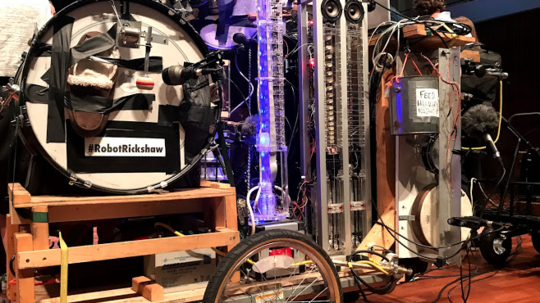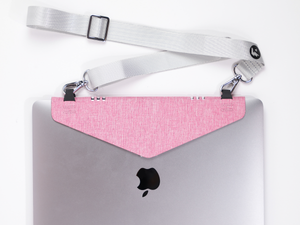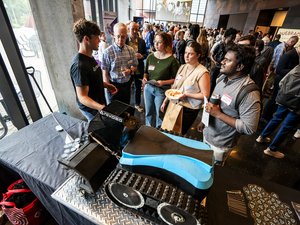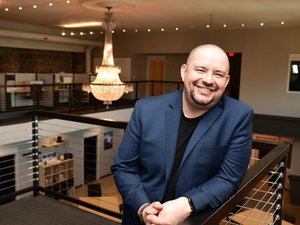
The Twin Cities tech community gathered at the Ordway Center in St. Paul Thursday evening for Minnedemo, an event where local startups and entrepreneurs give live demonstrations of projects they're working on.
Before Thursday, Minnestar, the local tech nonprofit that organizes Minnedemo, had not hosted one of their popular "geek show-and-tell" events in St. Paul for more than a decade. Minnestar has come a long way since it was founded in 2006, Executive Director Maria Ploessl told the audience at the start of the show.
The first Minnedemo was hosted in 2006 in the back of a Thai restaurant in Uptown Minneapolis. The Twin Cities tech community has grown tremendously since then. On Thursday night, the Ordway's concert hall, which seats around 1,100 people, was nearly full.
The seven presenting teams were each given seven minutes to make a case for their product, which last night ranged from virtual reality programs to one-man robot bands. Minnedemo29 began with appearances from St. Paul Councilman Chris Tolbert and Mayor Melvin Carter, who both briefly discussed the city's Full Stack St. Paul initiative, which aims to bring more tech companies to the capital city.
"Innovation is one of our core values here in St. Paul," Mayor Carter said. "Having an event like Minnedemo in our city is critical to its growth and future."
Here’s a quick breakdown of each of the seven presenters and their pitches:
Robot Rickshaw
Robot Rickshaw is really something you have to see to believe. Troy Rogers, a composer and musical robot maker from Duluth, kicked off his pitch with a philosophy lesson about "applied futurism" and concluded with a demonstration of Robot Rickshaw, a one-man band for the 21st century. Although the Rickshaw looked a bit haphazardly assembled (there was a slipper duct taped to the drum mechanism), it functioned almost perfectly. The kick drum started up immediately, and was accompanied by another device that sounded like a guitar along with a decked-out record player modified to make a range of musical, robotic tones.
The Adventures of Super Stretch
The Adventures of Super Stretch is an app designed to provide children with healthy, active screen time. Super Stretch was created by a yoga teacher, who explained during the presentation that the app is currently being used in Children's Hospital as well as Lifetime Fitness' daycare centers. The app is made up of digital flashcards that teach kids a variety of yoga poses and breathing exercises intended to relieve anxiety.
Squigl A.I
Squigl is an automated whiteboard that uses artificial intelligence to turn text into video presentations filled with pictures that look like whiteboard drawings. The platform is designed to be easy to use, and presenter Jeff Brown proved it by creating a whole presentation during his allotted seven-minute demo time. Squigl is currently being piloted at St. Thomas University and other local education institutions, Brown said.
Control Bright
Control Bright is an IoT device that allows users to control large, colorful smart lights from their computers and smartphones. Creator Chad Bailing explained that Control Bright's accent lights can be used by retail stores, hotel chains and individual owners to create fun and festive atmospheres outside buildings. Users can choose from millions of colors and control their Control Bright smart lights using the cloud.
Hands On
Hands On is an app that helps users find and apply to technical colleges. It was created by Computer Glitz, a team of five teenage girls who built the app as part of Technovation MN, a local group that teaches girls how to develop tech solutions to problems in their community. Presenters Ellie, Nora, Claire and Ashley explained that it's often difficult for potential students to locate and apply to technical colleges. Hands On helps applicants by finding programs that have exactly what they want to study, and then sends users reminds about application deadlines.
PEIR Mobile
PEIR Mobile is using Blockchain to solve issues in the shipping industry. PEIR stands for "Photo Equipment Intercept Receipt." David Carnes and Aaron Bryden explained that there are tens of millions of shipping containers currently in circulation, and one if four of those are damaged in some way. Through the app, users can report damages and other incidents.
Visual's Super Bowl Projects
Visual, a Minneapolis-based virtual reality company, presented the two VR projects its team created for Super Bowl week earlier this year. The first was a game made for the Be The Match booth. Players used a giant, tech-enhanced Q-tip to "swab" a pattern, then walk around a virtual park to find a match. The second game was set in a locker room, and players were tasked with collecting coins and throwing (infinitely spawning) footballs into lockers for points.








